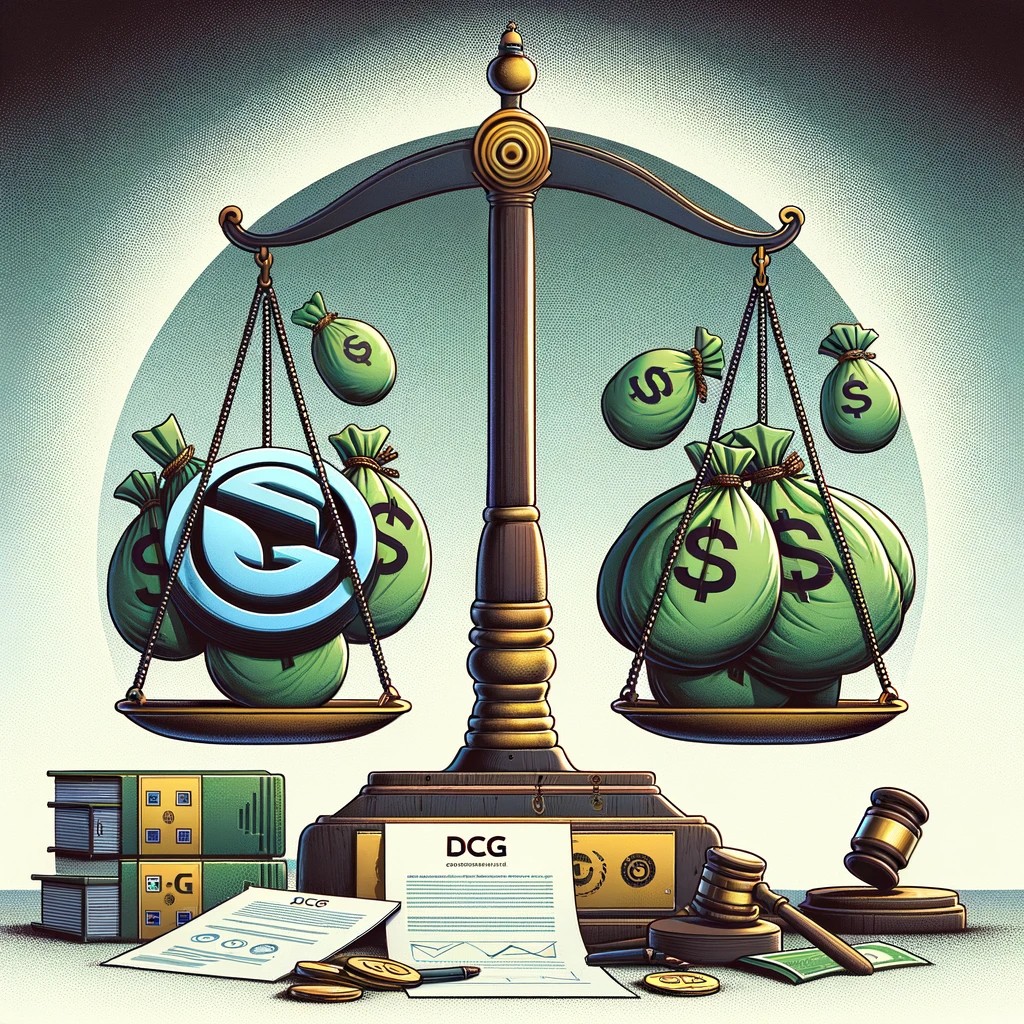The financial saga between Digital Currency Group (DCG) and its indebted partner, Genesis, has escalated further, with a fresh wave of accusations hitting the courtroom’s air. Despite DCG’s assertion of settling its entire debt with the bankrupt cryptocurrency lender Genesis, a self-organized cluster of Genesis creditors has thrown a wrench in the works. They have contested this claim in the Southern District of New York Bankruptcy Court, insisting that a significant chunk of debt remains unpaid.
Genesis creditors have presented a financial narrative that diverges sharply from DCG’s version. Their contention revolves around an alleged outstanding amount of $26 million, attributed to unpaid interest and additional late fees. This dispute doesn’t merely lie in the figures but extends to the mode of payment as well. Creditors are adamant that the repayment terms were breached, emphasizing that the agreement did not allow for the settlement in any form other than USD or Bitcoin. They specifically point out the inadmissibility of “illiquid instruments” as a medium of repayment.
Questionable Collateral and SEC Compliance
The “illiquid instruments” in question are the Grayscale Ethereum Classic Trust (ETCG) and Grayscale Ethereum Trust (ETHE), previously held as collateral. The choice of these instruments as a form of settlement has raised eyebrows, not just for their illiquidity but also for their market performance. As of early December, ETCG and ETHE were trading at significant discounts to their net asset value – 69% and 50%, respectively. This valuation paints a bleak picture, particularly when considering these funds are not sanctioned by the United States Securities and Exchange Commission and are traded over the counter.
The monetization of these shares and their subsequent conversion to Bitcoin was seen as a crucial step for accurate accounting. However, the creditors argue that even this process, with DCG bearing the purchase cost, does not rectify the core issue of the repayment method.
Repayment Disputes and Bankruptcy Filing
Adding another layer to this intricate financial drama, an official statement by the committee of unsecured creditors revealed specific details under the amended partial repayment agreement. According to this agreement, dated Nov. 28, DCG acknowledged the principal amount of its loans as 2,737.77102141 BTC and 14,048 Bitcoin Cash, inclusive of late fees amounting to 10.12600241 BTC.
The revelation of these figures came just days after DCG announced the repayment of its loans from Genesis on Jan. 5. This announcement might have been intended as a closing chapter to the ongoing financial saga. However, the creditors’ pushback paints a different picture, suggesting a convoluted and unresolved financial puzzle. This dispute emerges against the backdrop of Genesis’s withdrawal halt in November 2022 and its subsequent Chapter 11 bankruptcy filing in January 2023.
In this high-stakes financial drama, the contrasting narratives between DCG and Genesis creditors highlight the complexities and uncertainties inherent in the cryptocurrency market. The unfolding events, coupled with the involvement of regulatory bodies like the SEC, underscore the evolving landscape of digital finance. As the case progresses, it will undoubtedly serve as a critical reference point for legal and financial precedents in the cryptocurrency domain.
In essence, the dispute between Genesis creditors and DCG is not just a battle over numbers and repayment terms. It’s a manifestation of the larger challenges and growing pains of a rapidly evolving digital financial ecosystem. This case serves as a reminder of the importance of clear, compliant, and transparent financial practices, especially in the relatively uncharted waters of cryptocurrency lending and repayment.





